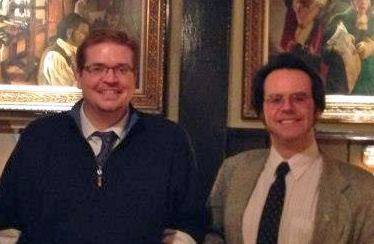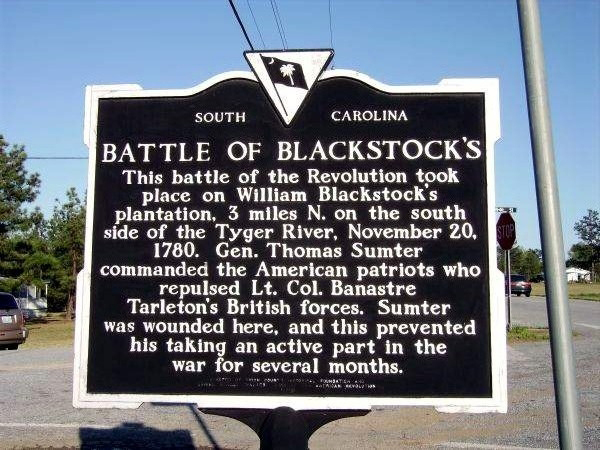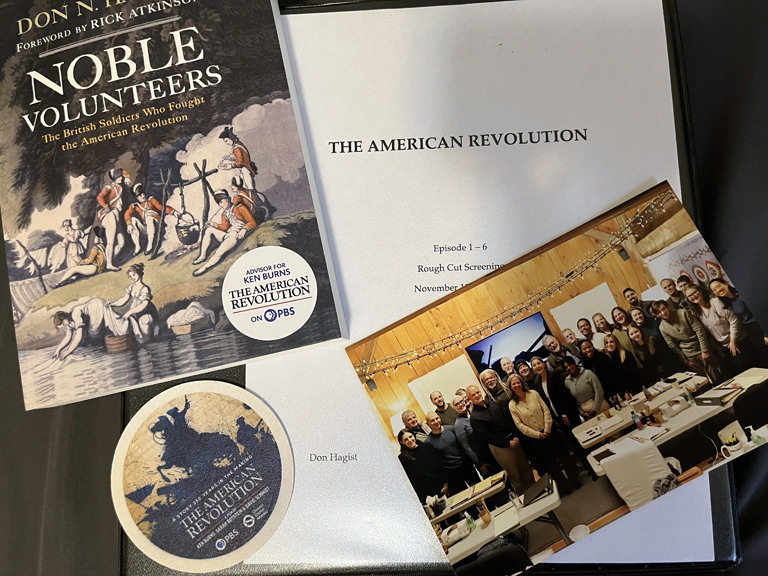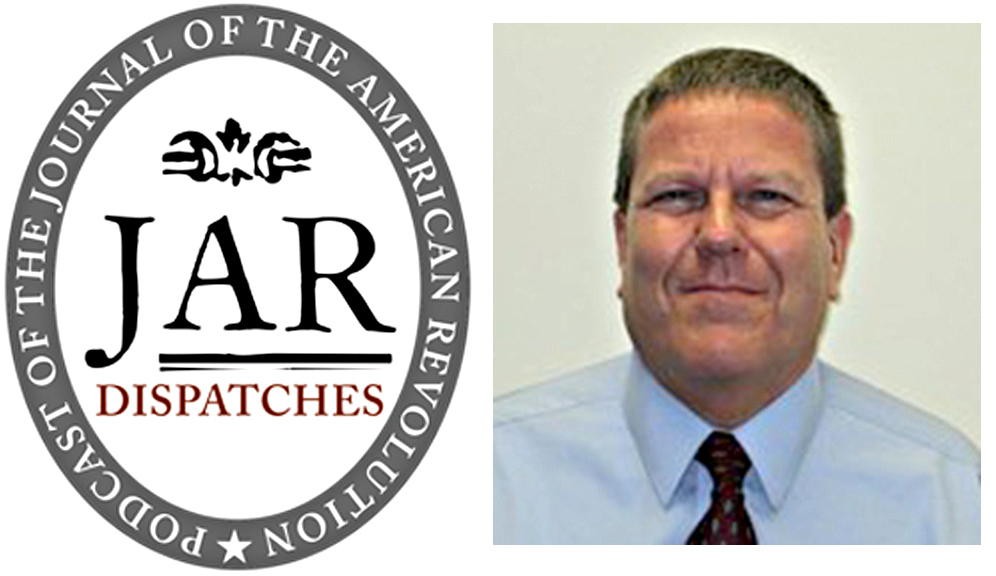
(click to watch 53-min video)
When we think of prolific writers of American Revolution history, the names Bailyn, Ellis, Fleming, Morgan, Raphael, Wood and Young may come to mind. Another name that easily rivals those in quantity of words authored about the subject is Bell. John L. (J. L.) Bell is the author of one of, if not the, most popular blogs about the American Revolution, Boston 1775. The blog’s tagline says it all: “History, analysis, and unabashed gossip about the start of the American Revolution in Massachusetts.”
Since May 2006, J. L. has published entertaining articles about the Revolution at a dizzying pace. Between 2007 and 2012, he averaged 380 blog posts per year! In that time, he also authored many magazine and newspaper articles, presented numerous speeches and teacher workshops, contributed essays to a few books and researched/wrote a 650-page historic research study for the National Park Service titled General George Washington’s Headquarters and Home—Cambridge, Massachusetts.
What makes J. L. a favorite among amateur and professional historians alike—aside from his iconic 19th century-style sideburns—is his approachable style of writing and meticulous research.
1 // First, what’s the story behind the name and the sideburns? Was J. L. a strategic choice to avoid confusion with this guy?
There have been many John Bells out there. The first I recall seeing on TV was a college lineman for, I think, Nebraska in the early 1970s. There’s a famous type designer. There’s a man who ran for President against Lincoln. There are at least three people of that name in pre-Revolutionary Boston. So many years ago I decided that using my initials as an author might be a little more distinct. That leaves just me and a professor of Boolean logic to fight over the territory.
As for the sideburns, I’ve had them since I was sixteen. They may be an affectation, but they’re my affectation. Of course, if I ever try eighteenth-century reenacting, they’d have to go.
2 // Your first posts on Boston 1775 published May 13, 2006. What inspired you to launch your blog seven years ago? And, more importantly, what kind of coffee have you been drinking to give you enough energy to write almost daily since then?
Back in 2005 or so, I was thinking about a website to share some of the fun little things I’d discovered about Revolutionary history. I talked about possibilities with a writing friend named Greg Fishbone (http://gfishbone.com/), who also did website design, and I realized that it would be much easier to build up the site gradually as a blog than to try to design it all from the start. Plus, with blogging architecture I wouldn’t have to learn all of HTML or go through a sixteen-year-old webmaster every time I wanted to make a change.
I didn’t actually do anything more until I went to a workshop by another writing friend named Mitali Perkins (http://www.mitaliperkins.com/), and she urged everyone to start blogs on their special interests. So later that month I posted my first Boston 1775 essay.
As for coffee, I don’t drink it. I do, on the other hand, drink about six cups of tea a day. I probably wouldn’t have survived well in America in late 1773.
3 // You’re one of the few bloggers I know who has sustained such an aggressive editorial calendar. What’s your secret and how do you choose/plan your content?
I don’t really plan my content. Oh, sure, I stay aware of major anniversaries like the Boston Massacre, Battle of Lexington and Concord, Bunker Hill, and the Boston Tea Party. But many other significant dates sneak up on me until it’s too late.
Sometimes I post items that I’ve had saved on my hard drive for years. Sometimes a story or question catches my fancy on one day and I end up following a tangent for two or three more days, often longer than I expect. Sometimes a comment or email will raise questions that I can’t resist looking into, and then I want to share the results more widely.
At busy times I will gladly pilfer content—excuse me, pass on excellent research and writing from other websites. With links, of course.
4 // The most frequently used tags on your blog content suggest that your favorite subjects to write about are children, women, myths and George Washington (in that order). What else does this reveal about the American Revolution?
The funny thing about those tags is that they flag exceptions rather than the norm. Most Boston 1775 postings are about Massachusetts, for example, but I don’t have a “Massachusetts” tag because it would point to too many items to be useful. The overwhelming majority of postings are about adult white males who aren’t George Washington or British soldiers doing real things.
That said, I am particularly interested in the experiences of children caught up in the Revolution. The killing of Christopher Seider in February 1770, around his eleventh birthday, was the first topic I set out to research in depth about fifteen years ago. Several of the articles I’ve published, including the chapter in Children in Colonial America, have been about young people’s activities. I always like to remind people that well over 50% of the American and British people in 1776 were under the age of 16.
As for women, they were also a little over 50% of the adult population. But of course their lives were restricted in eighteenth-century society, especially when it came to politics and warfare. The historical sources on them are much sparser than for men, especially rich men. I don’t focus on women the way I focus on children, but because of their relative rarity in the sources I’m always pleased to be able to highlight them. (For more female voices, check out the In the Words of Women book and blog: http://inthewordsofwomen.com/.)
Myths always make good copy. And there are a lot of tall tales, misunderstandings, and spurious quotations floating around in American Revolutionary history. The different ways they’ve developed, ranging from simple misreadings of documents to wishful hindsight and outright fabrications, are also revealing about how we look at history.

5 // I imagine you’ve dabbled in Revolution history outside of Massachusetts. What are some of your favorite non-Massachusetts-oriented books about the American Revolution and why?
The Incendiary: The Misadventures of John the Painter, First Modern Terrorist, by Jessica Warner, is the story of James Aitken, a Scottish immigrant to America who decided to go back to Britain during the Revolutionary War and burn down a naval shipyard. It’s a true-crime story and a terrific example of historical detective work. (That book was originally published as John the Painter, which was an alias Aitken used; that title gave the unfortunate impression that the book was about painting.)
The Lord Cornbury Scandal: The Politics of Reputation in British America, by Patricia U. Bonomi, tackles a historical question from the early 1700s: did the royal governor of New York really go around dressed in women’s clothes and have his portrait painted that way? Bonomi concludes that those rumors had more to do with the limits of political rhetoric at a delicate time in British dynastic succession and before the concept of “the loyal opposition.” As for the painting, it’s definitely not Cornbury; the woman in the picture has a much stronger chin.
Both of those books are “microhistories,” meaning their authors dig very deep into isolated incidents that might not seem very consequential but can actually provide a lot of insight. I enjoy reading that approach more than big sweeping narratives and analyses.
I’ll also mention The Invention of George Washington, by Paul K. Longmore, and The Ascent of George Washington, by John Ferling. Both those books look at Washington’s struggle to become the gentleman he wanted to be, and at the same time to tame his outward ambition to acceptable levels. As biographies those books humanize Washington instead of idolizing him, and as a result I think in the end he becomes more sympathetic and admirable.
6 // What are your favorite online resources for researching individuals and events of the American Revolution?
Here’s my biggest secret: Google Books is an incredible resource. As a database its strength is size rather than subtlety—there’s no way to sort hits by date, for example. I’ve developed some tricks to using it, such as trying different key phrases and different forms of names in quotes, looking only in the public-domain books to find the older publications, and avoiding the long S in books printed in the 1700s. Even then, the site’s quirks can trip me up. Nevertheless, that database contains an amazing amount of useful material to be rediscovered.
I list some other publicly accessible online resources on the Boston 1775 website. I’m fortunate that through the Boston Public Library I can access Readex’s Archive of Americana database, and through my local public library the J-STOR database of academic articles.
7 // History is an infinite space with new and exciting things always being discovered. What new or exciting thing about the American Revolution have you recently learned or discovered?
Speaking of Google Books, I recently came across an account of how Henry and Lucy Knox left Boston that has never appeared in any Knox biography. It comes ultimately from a man who had worked closely with Knox in setting up Boston’s grenadier militia company before the war, so it deserves serious consideration. But the account appeared only in a book review in the United States Democratic Review in 1848 and an obituary in Hunt’s Merchants’ Magazine and Commercial Review in 1849—not the usual places anyone would look—and then got buried on library shelves. Google Books’s keyword searching brought those items back up to the surface.
For the study of Washington’s first year as a general, I used many sources, including unpublished manuscripts in the Rhode Island state archives and the New-York Historical Society, to unearth aspects of his intelligence operations. Specifically, I was able to name (a) Washington’s likely first paid agent inside Boston, (b) the British deserter who brought out plans of the town’s fortifications, and (c) Dr. Benjamin Church’s mistress.
FEATURED IMAGE: Screenshot of a J. L. Bell’s video interview by Edward Roche, following a Bunker Hill Day debate featured on YouTube.
TOMORROW: More of this J. L. Bell interview, including additional book recommendations and what Washington didn’t realize. Plus, can we expect a hardcover version of the Boston 1775 blog soon?








4 Comments
I would be listing J.L. Bell as one of my favorite authors on this subject, if I were asked. I’ve read his blog almost since the launch and everyday enjoy the unabashed stories and subjects he provides. Speaking about name confusion: John Bell should live a day with MY name….John Smith. I enjoy your book also, Todd. It’s a source of endless exploration for me.
Another J. L. Thanks, John. I appreciate your kind words.
John Bell is the best! How many times have I played “just ask John” on some obscure point about the Revolution in Boston. Al Young, too, tapped into John’s wealth of knowledge of his subject. Sometimes, when talking with someone in the Revolutionary War community, I have heard: “I wonder what Bell has to say about that.” It’s all about dedication to his subject – and a willingness to share.